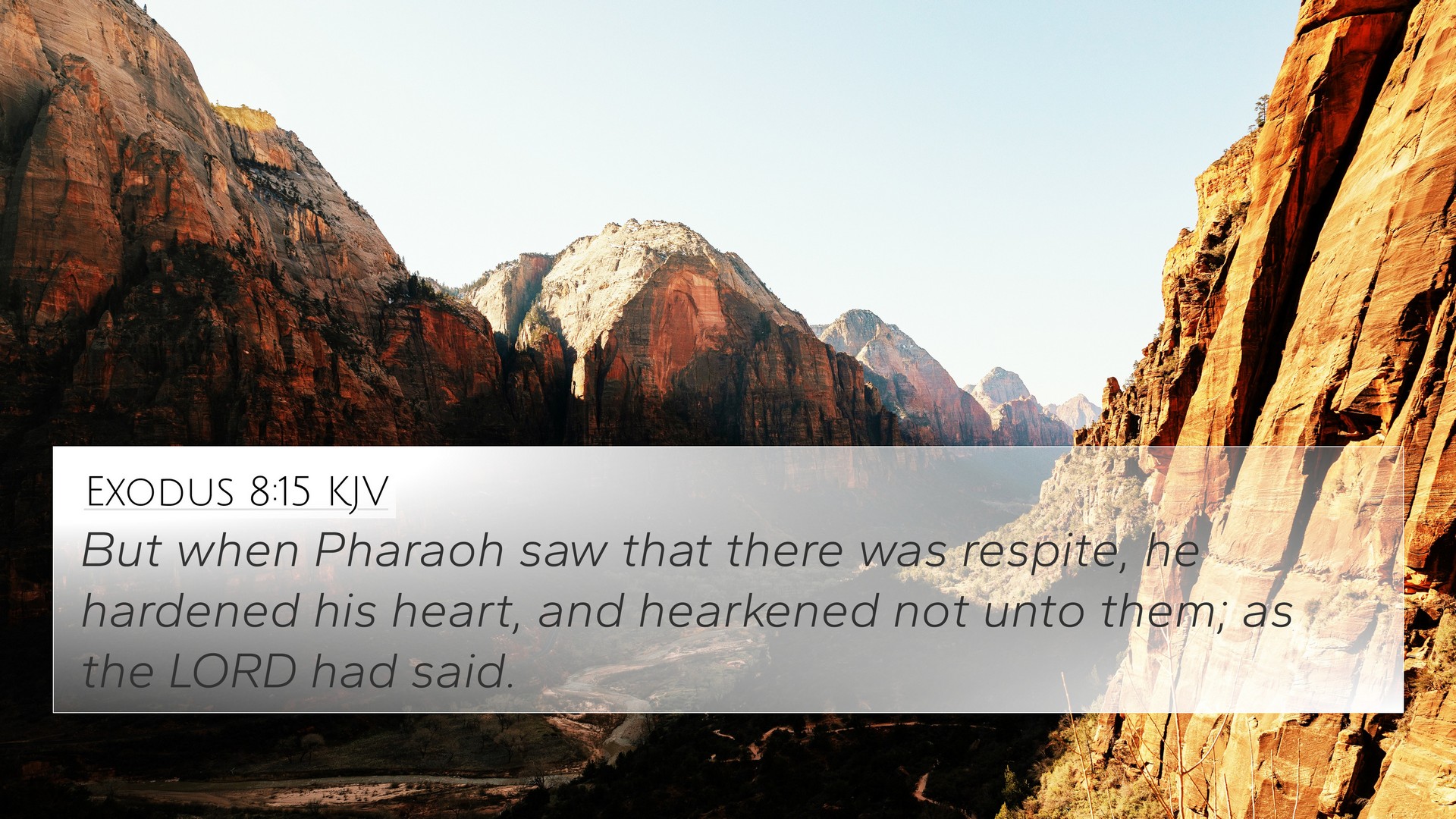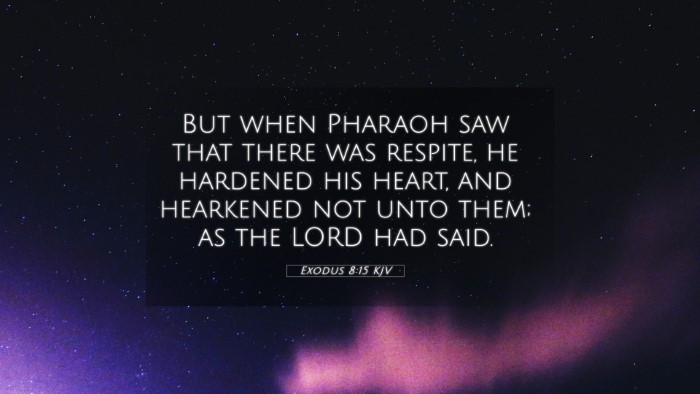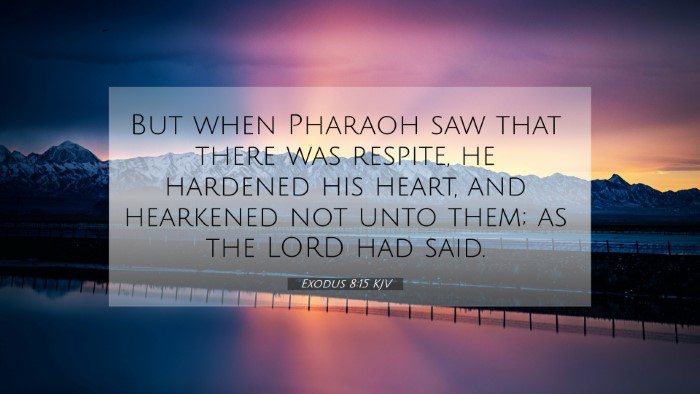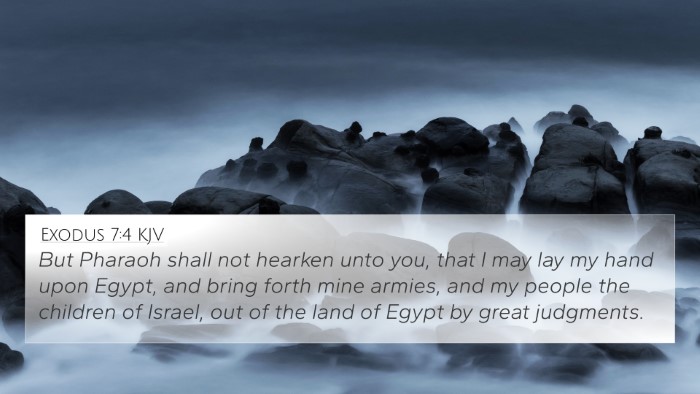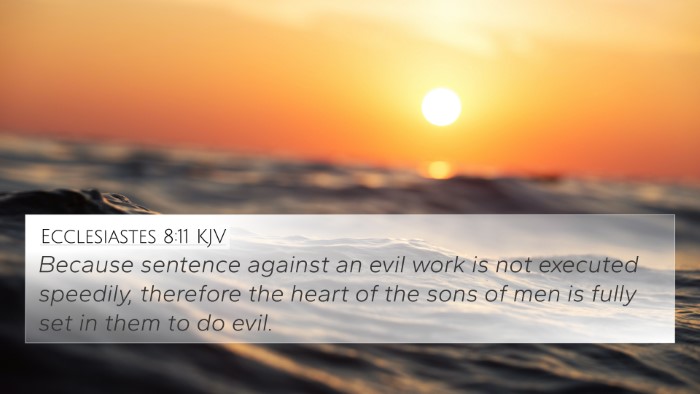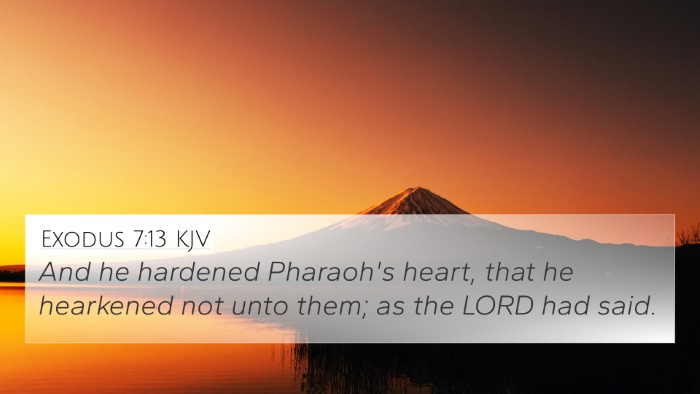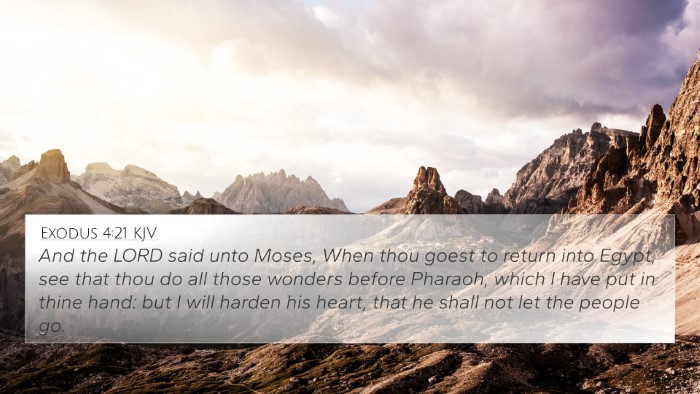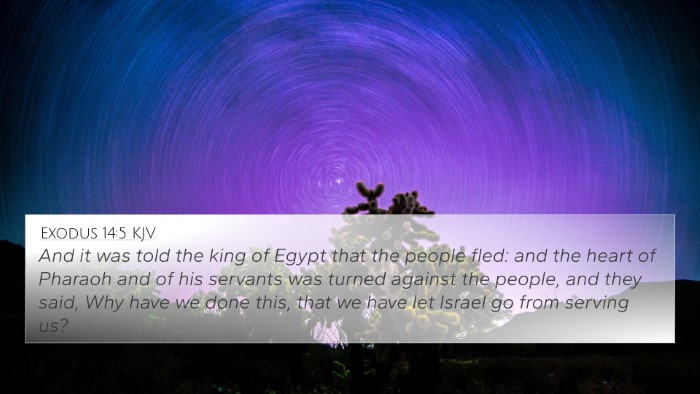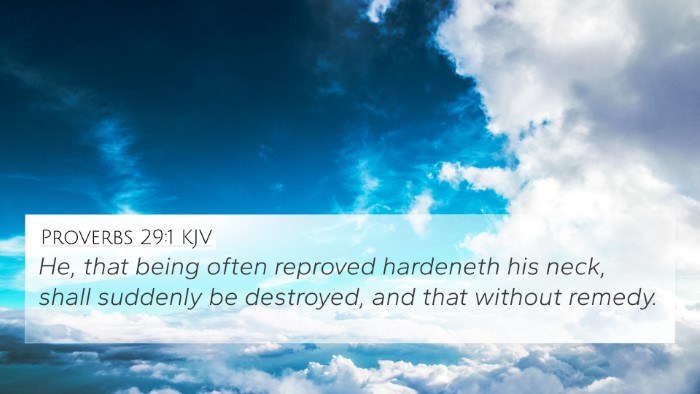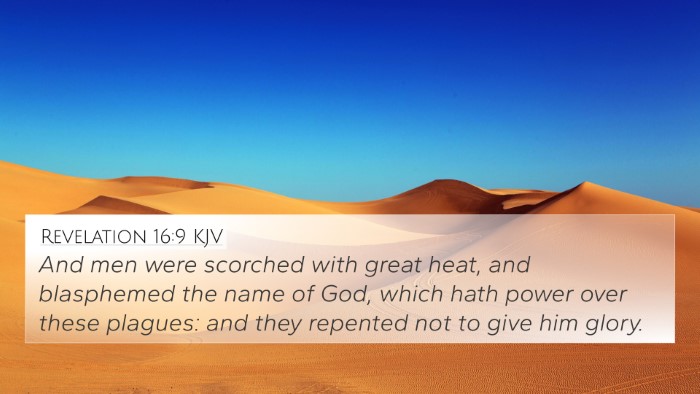Understanding Exodus 8:15
Verse: Exodus 8:15 – "But when Pharaoh saw that there was respite, he hardened his heart, and hearkened not unto them; as the LORD had said."
Summary of Meaning
This verse is pivotal as it illustrates Pharaoh's resistance to God's commands through Moses and Aaron. Despite witnessing the plagues—clear manifestations of divine power—Pharaoh's hardened heart demonstrates human obstinance against divine will. The concept of a hardened heart is a recurring theme in Scripture, indicative of a person's unwillingness to submit to God’s authority.
Commentary Insights
Matthew Henry: Henry emphasizes that Pharaoh's response is not merely a reaction to suffering but a deeper reflection of his character. The respite he felt due to the cessation of plagues led him to dismiss the warnings of the prophets. This behavior showcases the danger of temporary relief leading to spiritual complacency.
Albert Barnes: Barnes notes that Pharaoh’s hardened heart is part of God's plan, allowing God to demonstrate His power further through subsequent plagues. This aspect highlights the interplay between divine sovereignty and human free will, where Pharaoh’s rejection of God's commands leads to further judgment.
Adam Clarke: Clarke points out that Pharaoh's hardening of heart illustrates the gradual progression of sin. Each time God intervened, the hardness of heart increased. Clarke suggests this serves as a warning to believers about the danger of dismissing spiritual truths and becoming resigned to sin.
Bible Verse Cross-References
Exodus 8:15 connects to several other Scripture passages, forming a broader narrative of opposition to God’s will:
- Exodus 7:3 - "And I will harden Pharaoh's heart, and multiply my signs and my wonders in the land of Egypt."
- Exodus 9:12 - "And the LORD hardened the heart of Pharaoh, and he hearkened not unto them; as the LORD had spoken unto Moses."
- Romans 9:17 - "For the scripture saith unto Pharaoh, Even for this same purpose have I raised thee up, that I might show my power in thee..."
- Proverbs 29:1 - "He, that being often reproved hardeneth his neck, shall suddenly be destroyed, and that without remedy."
- Hebrews 3:15 - "While it is said, Today if ye will hear his voice, harden not your hearts, as in the provocation."
- 2 Thessalonians 2:10-12 - "...and with all deceivableness of unrighteousness in them that perish; because they received not the love of the truth, that they might be saved."
- Acts 7:51 - "Ye stiff-necked and uncircumcised in heart and ears, ye do always resist the Holy Ghost..."
Connections Between Bible Verses
Understanding the connections between Bible verses, particularly those related to the theme of spiritual hardness, enriches our comprehension of God’s character and human nature. These cross-references reveal the recurring motif of resistance to divine authority and the consequences that follow.
Pharaoh's example serves as a cautionary tale. The notion that repeated warnings from God may be disregarded leads to increased judgment. This idea is echoed throughout both the Old and New Testaments, as seen in the prophetic writings and apostolic teachings.
How to Use Bible Cross-References
For better understanding of biblical texts, employing tools for Bible cross-referencing is crucial:
- Utilize a Bible concordance to locate similar themes and terms.
- Examine a Bible cross-reference guide to discover relational contexts.
- Engage in cross-reference Bible study methods for deeper insights.
- Explore comprehensive Bible cross-reference materials for related scriptural themes.
Conclusion
Exodus 8:15 encapsulates the tension between human defiance and divine authority. The persistent warnings from God through Moses and Aaron highlight the necessity of humility and repentance in response to divine intervention. By exploring the thematic connections and applying cross-referencing techniques, we can uncover layers of meaning and relevance in our spiritual lives.
